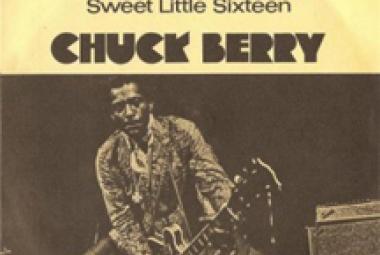MONTGOMERY CHAPEL
Nick Freund began working with four of his students to form a band that took the name the Search Party: Peter Apps (lead guitar and vocals), Joanie Goff (vocals and guitar), Jim Carvalho (bass, guitar and vocals), and Tim King (drums). Freund himself was evidently on organ and composed most of the music; he also produced the album. The music was recorded in 1968 at the Montgomery Chapel at San Francisco Theological Seminary, so Montgomery Chapel became the name of the album. Just 600 copies were pressed on the tiny Century Records label, and the band performed together live only once, at a sort of “thank you” party. Nick Freund left California and joined the faculty at Mount Saint Paul College in Waukesha, Wisconsin later that year.
* * *
“Side 2” is subtitled Mass for the Secular City and is, I suppose, a proper Mass set to popular rhythms.
The performance also tells the story of a musician named Johnny Lamb who comes to the city in search of fulfillment. The choir is accompanied by a full band, and the same powerful organ on the Search Party’s Montgomery Chapel is in evidence on this music. There are a few bonus tracks at the end of this CD that include Bach’s “Prelude and Fugue in G Minor” – over which the history of St. Pius X Seminary is told – and “Hail Mary”.
* * *
While not giving the album a glowing review, Richie Unterberger says in Allmusic of the Search Party’s Montgomery Chapel album (the original release, that is): “There were many psychedelic albums like this issued in small press runs in the late ’60s: folky, bittersweet melodies that tilted toward the downright sad and melancholy; high strident female vocals sharing duties with less memorable, more normal-sounding male singing; a studied over-seriousness to the vocal delivery; a naïve, questing-for-the-meaning-of-life tone to the compositions; and organ residing in a halfway house between the LSD trip and the mortuary. Even if you take it as a given that most of these albums have a dated pretentiousness that many would poke fun at, however, this is certainly one of the better such efforts in this mini-genre, and possessed of some real musical appeal in spite of its considerable flaws. Most of the arrangements have an understated, effective (if somewhat creepy) eeriness. Songs like ‘Speak to Me’, ‘Renee Child’, ‘Poem by George Hall’, and ‘The Decidedly Short Epic of Mr. Alvira’ are good time-capsule mood pieces in their evocative otherworldliness, at times sounding a little like a psychedelic seance.”
(September 2014)















